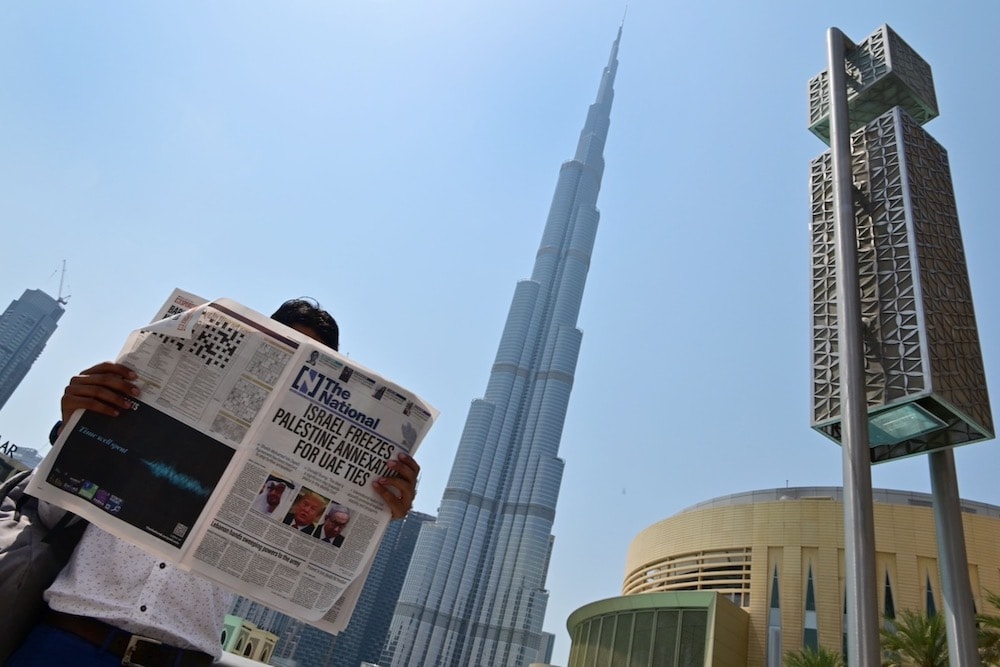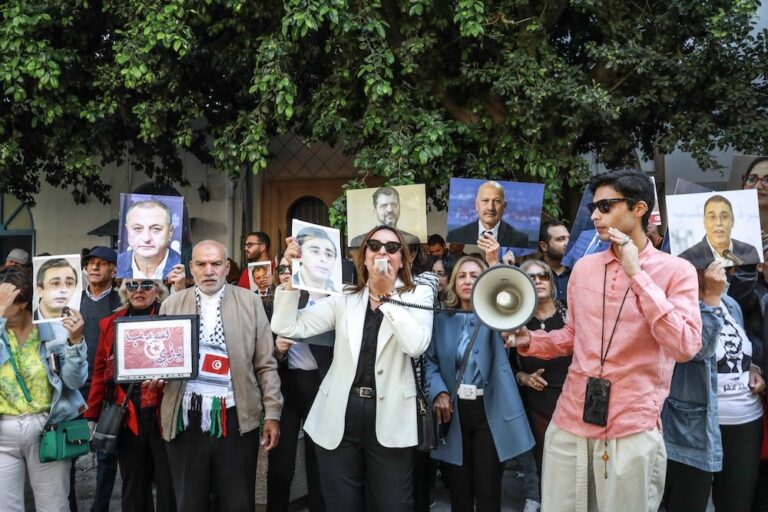Repressive media laws in Gulf Cooperation Countries reflect concerning press freedom trends.
This statement was originally published on adhrb.org on 31 January 2024.
Historically, Gulf Cooperation Countries have used a strategy of repression by imposing state control of the media or through broad laws and strict censorship. Often, the governments justify this control by referring to social values like cohesiveness and harmony in society. However, this strategy places journalists in the Gulf at extreme risk. They are harassed, and, on some occasions, they are imprisoned without a possibility of judicial review. Overall, the scores of GCC countries regarding freedom of the press are low. The highest-scoring country is Kuwait, ranking 108 out of 180, and the worst is Saudi Arabia, ranking 172 out of 180.
Bahrain revised its Media Law in 2002, promising more liberties for journalists. However, the legislation contains relevant limits for journalists with 17 existing categories of offences. For three of them, journalists may be imprisoned for up to three years, while the others can result in high fines. Article 19 of the Media Law allows the Ministry of Information to retain publications that are deemed not to be appropriate. The current situation of the media remains problematic; the government owns all media outlets since the 2017 Media Law suspended all private news outlets. Reporters frontières (RSF) have reported the presence of at least 15 journalists in prison.
Moving to Kuwait, the state revised freedom of the press with the 2006 Press and Publications law. Even if Kuwait scores highest in journalists’ freedom of expression, the law contains 12 sections prohibiting certain publications. Notably, it is the only country in the Arab Gulf with a process similar to a judicial review. The Ministry of Interior must explain a refusal of publication within 90 days. More recently, the Kuwaiti government has become stricter in repressing journalists’ freedom of expression. A famous case has been the sentence against Abdullah al-Saleh in 2017 for insulting the allied country.
As regards Saudi Arabia, the country scores the lowest in freedom of the press and is one of the most repressive landscapes in the world. Critical journalism does not exist, and the government considers the media a tool via which to promote their campaigns. The government regulates media with the 2003 Press and Publication Act. The law is extensively broad and provides restrictions for public order, harming the economy, or any act considered to put the stability of the state at stake. Currently, Saudi Arabia has only ten newspapers strictly monitored by the royal family. In addition, radio and television are also controlled by the Ministry of Culture, which tries to restrict freedom of the media. According to reports, it appears that every year, at least 37 journalists are imprisoned, with the most famous case being the murder of Jamal Khashoggi, while he was at the Saudi consulate in Istanbul.
The United Arab Emirates also took control of the press by emitting restrictive laws and blocking information available on the internet. The law regulating the media emitted in 1980 is highly restrictive, allowing its interpretation to lead to a violation easily. To mention some of the punishments, for the less grave forms, there are fines of 5,000 euros and imprisonment of up to 2 years for the most severe forms. The UAE’s tight regulation results in self-censorship and there is a risk of imprisonment. Notably, two journalists are in jail, having been sentenced for the infamous UAE 94 case.
According to Reporters Without Borders, Qatar ranks 104 out of 179 countries. The press is considered not free, and self-censorship is likely common. Qatar’s Media Law regulates freedom of the press, for example prohibiting putting the nation’s economy at stake or criticizing the emir. Particularly concerning appears the repression against the coverage of the struggles faced by migrant workers. In 2016, Qatar detained three journalists while confiscating their footage for dealing with this topic.
Finally, Oman also ranks at the bottom of the press freedom ranking. The government is the owner of the two major daily newspapers. Censorship is common both in printed and online documents. Since 2016, the state has employed even stricter regulations by trying to crack down on some agencies. The reports show that at least three outlets have been closed and more than three journalists put into prison.
To conclude, there are similar trends between different GCC countries regarding regulating freedom of the press. In particular, the laws heavily restrict journalists’ ability to express themselves freely. Eventually, this causes widespread auto censorship, as journalists fear imprisonment or prosecution. This trend is concerning and, unfortunately, in line with the rule of law of these countries. The GCC countries must amend their media laws, and simultaneously, pressure from the international community is needed to request that the rights of journalists be safeguarded.



